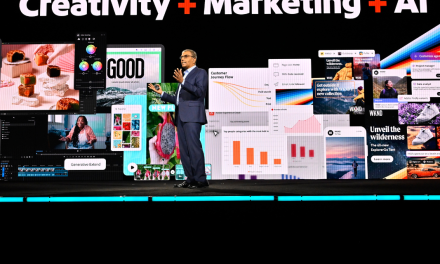BEIJING, June 14, 2023 /PRNewswire/ — WiMi Hologram Cloud Inc. (NASDAQ: WIMI) (“WiMi” or the “Company”), a leading global Hologram Augmented Reality (“AR”) Technology provider, today announced that its R&D team had designed a CNN-based P300 BCI game model and proposed a Bayesian deep learning-based algorithm that solves the overfitting problem when training on small data sets. The successful application of P300 to the game model species proves that it can be applied to deep learning algorithms for online BCI systems.
The system framework of this game model contains three subsystems, namely, a data acquisition part, a data processing part, and a vision and game terminal. In the data acquisition part, multi-channel scalp EEG signals are recorded using electrode caps and amplifiers. After the signals are pre-processed, the data processing part can be divided into two steps: offline training and online classification testing. Finally, the classification results are converted into operation commands and sent to the vision and game terminals. The visual and game terminal consists of two sub-steps: (1) providing visual stimuli to the user after the stimulus strategy update and (2) providing visual feedback (output coordinates) to the user.
EEG data acquisition and pre-processing
WiMi’s BCI game model uses a 32-channel capacitor and amplifier to record EEG data non-invasively by digitizing at 1000 Hz and filtering using a 50 Hz trap filter. The system collects all electrode data. The recorded data were first filtered to reduce the effect of filtering edge effects. Band-pass filtering is used for the EEG signal from each channel, and the system captures the necessary information for the P300 signal after stimulation. Then, the system downsamples the data. A data matrix of identical characters is superimposed and averaged to reduce the signal-to-noise ratio.
CNN Architecture
After the BCI signal of the game model is pre-processed, the data processing part can be divided into two steps: offline training and online classification. Bayesian-based backpropagation via CNN is a variational inference method for learning the posterior distribution of neural network weights from which the weights in the backpropagation can be sampled. For example, if a Gaussian distribution represents each weight parameter, the original weight values can be described as parameters of the Gaussian distribution, i.e., the mean and standard deviation. The posterior is then computed by variational inference.
The convolutional layer requires convolutional operations using convolutional kernels with weight values. Each weight parameter in the convolution kernel is represented as a Gaussian distribution. The Gaussian distribution must be sampled using the Gaussian distribution to obtain a particular weight value. Therefore, a reparameterization technique is used to put the sampling process in front of the sampling process so that the forward propagation of the network becomes derivative, and the weights are updated during the backward propagation. A certain number of weight values are sampled from the weight distribution of the convolution kernel, and the weight values obtained in this way are formed into a convolution kernel that performs the convolution operation on the receiver field.
Brain-computer interface is an unconventional method of communication that creates a communication path between a person and the periphery. Initially, BCI was used in the clinical field to help patients regain the ability to interact with the outside world by sending commands directly from the brain to a computer. Nowadays, in addition to clinical applications, BCI technology has been experimented with and applied in recreational games. It is often used to provide input to games, thus freeing them from reliance on intermediate devices (mouse, keyboard, gamepad, and game controller).
WiMi’s CNN-based BCI game model constitutes a platform that can satisfy the interests of both healthy and disabled users. For healthy users, BCI games are mysterious and technical, adding to the game’s charm and very conducive to the promotion of the game. For disabled users, BCI games provide them with a suitable gaming platform that allows them to play games the same way as healthy users and serves as a functional rehabilitation system to help patients with rehabilitation training. Applying BCI technology to recreational games is essential to promoting BCI technology from the scientific research stage to the practical application market stage.
About WIMI Hologram Cloud
WIMI Hologram Cloud, Inc. (NASDAQ:WIMI) is a holographic cloud comprehensive technical solution provider that focuses on professional areas including holographic AR automotive HUD software, 3D holographic pulse LiDAR, head-mounted light field holographic equipment, holographic semiconductor, holographic cloud software, holographic car navigation and others. Its services and holographic AR technologies include holographic AR automotive application, 3D holographic pulse LiDAR technology, holographic vision semiconductor technology, holographic software development, holographic AR advertising technology, holographic AR entertainment technology, holographic ARSDK payment, interactive holographic communication and other holographic AR technologies.
Safe Harbor Statements
This press release contains “forward-looking statements” within the Private Securities Litigation Reform Act of 1995. These forward-looking statements can be identified by terminology such as “will,” “expects,” “anticipates,” “future,” “intends,” “plans,” “believes,” “estimates,” and similar statements. Statements that are not historical facts, including statements about the Company’s beliefs and expectations, are forward-looking statements. Among other things, the business outlook and quotations from management in this press release and the Company’s strategic and operational plans contain forward−looking statements. The Company may also make written or oral forward−looking statements in its periodic reports to the US Securities and Exchange Commission (“SEC”) on Forms 20−F and 6−K, in its annual report to shareholders, in press releases, and other written materials, and in oral statements made by its officers, directors or employees to third parties. Forward-looking statements involve inherent risks and uncertainties. Several factors could cause actual results to differ materially from those contained in any forward−looking statement, including but not limited to the following: the Company’s goals and strategies; the Company’s future business development, financial condition, and results of operations; the expected growth of the AR holographic industry; and the Company’s expectations regarding demand for and market acceptance of its products and services.
Further information regarding these and other risks is included in the Company’s annual report on Form 20-F and the current report on Form 6-K and other documents filed with the SEC. All information provided in this press release is as of the date of this press release. The Company does not undertake any obligation to update any forward-looking statement except as required under applicable laws.
















